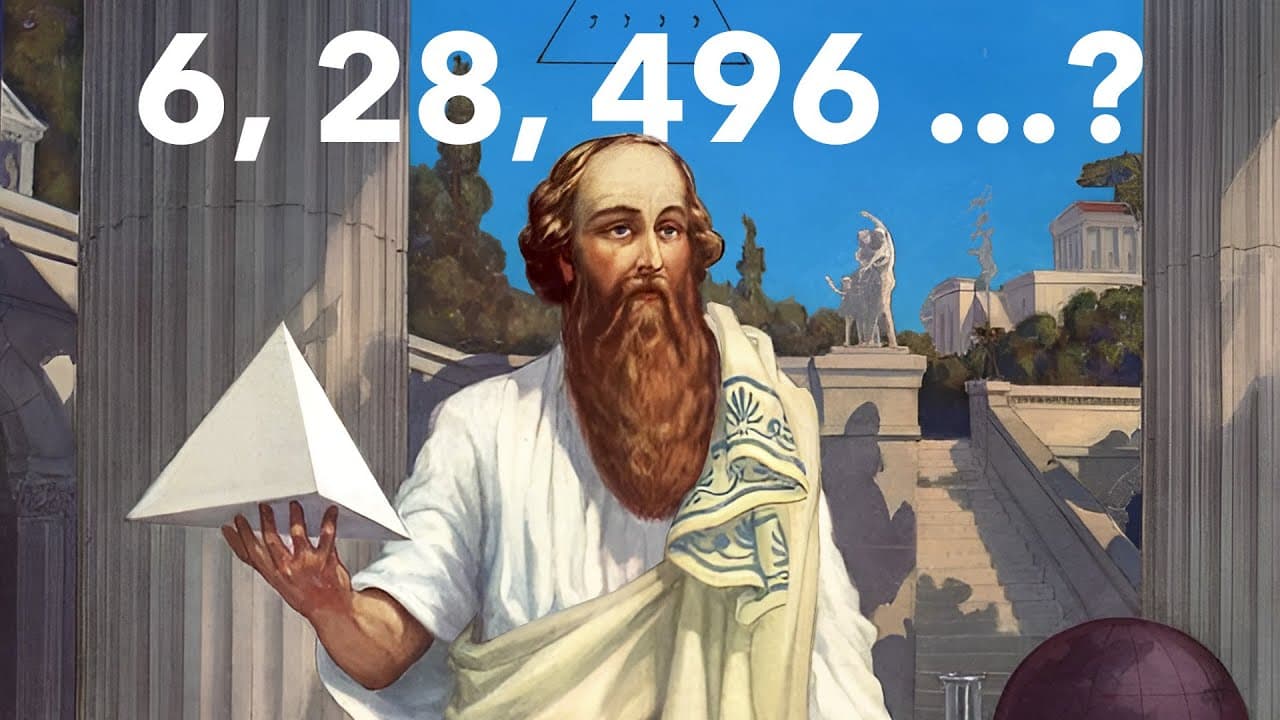The Oldest Unsolved Problem in Math
08 Mar 2024 (almost 2 years ago)

Perfect Numbers
- A perfect number is a positive integer that is equal to the sum of its proper divisors.
- The oldest unsolved problem in mathematics is to determine if any odd perfect numbers exist.
- The only even perfect numbers known to the ancient Greeks were 6, 28, 496, and 8,128.
- Euclid discovered a pattern that generates even perfect numbers: (2^{p-1} \times (2^p - 1)), where (p) is a prime number.
- Nicomachus published five conjectures about perfect numbers, including that all perfect numbers are even and end in 6 or 8 alternately.
- Ibn Fallus published a list of 10 perfect numbers, but three of them were incorrect.
- Marin Mersenne studied numbers of the form (2^p - 1) and identified several Mersenne primes, which correspond to perfect numbers.
- Pierre de Fermat and Rene Descartes believed that if an odd perfect number exists, it must have a special form.
- Descartes proposed the existence of perfect numbers but couldn't prove it.
- Leonhard Euler made three breakthroughs in studying perfect numbers.
- Euler proved that every even perfect number has Euclid's form, solving a 1600-year-old problem.
- Euler conjectured that every odd perfect number must have a specific form but couldn't prove its existence.
- Progress in finding new perfect numbers was slow until the advent of computers.
- Raphael Robinson used a computer program to find five new Mersenne primes and corresponding perfect numbers in 1952.
- The Great Internet Mersenne Prime Search (GIMPS) was launched in 1996 to distribute the search for Mersenne primes over many computers, leading to the discovery of 17 new Mersenne primes.
- The largest known prime number is 2 to the power of 82,589,933 minus 1, discovered in 2018.
- Mersenne primes are a special type of prime numbers that are almost always the largest known prime numbers.
- The Lenstra and Pomerance Wagstaff conjecture predicts that there are infinitely many Mersenne primes and even perfect numbers.
Odd Perfect Numbers
- Odd perfect numbers are numbers that are the sum of their proper divisors and are odd.
- No odd perfect numbers have been found yet, and the largest known lower bound for an odd perfect number is 10 to the power of 2,200.
- Spoofs are numbers that are very close to being odd perfect numbers, but are not perfect because they have a composite prime factor.
- A heuristic argument suggests that there are no odd perfect numbers between 10 to the power of 2,200 and infinity.
Applications and Significance
- Number theory had no real-world applications for over 2000 years, but it later became the foundation of cryptography.
- The problem of perfect numbers has no known applications, but it has led to the development of new mathematical ideas and techniques.
- Around 10 to 15 mathematicians are currently working on the problem of perfect numbers.
Brilliant Learning Platform
- Brilliant is a learning platform that allows you to follow your curiosity and build real skills.
- It offers thousands of lessons in various subjects, including math, data science, programming, and technology.
- With Brilliant, you can apply your knowledge to real-world situations and develop hands-on intuition.
- The platform provides guided learning paths to help you delve deeper into specific topics.
- Brilliant offers bite-sized lessons that can be accessed from your phone, making it convenient for busy individuals.
- You can try Brilliant for free for 30 days by visiting brilliant.org/veritasium or scanning the QR code in the video description.
- The first 200 people to sign up will receive a 20% discount on Brilliant's annual premium subscription.